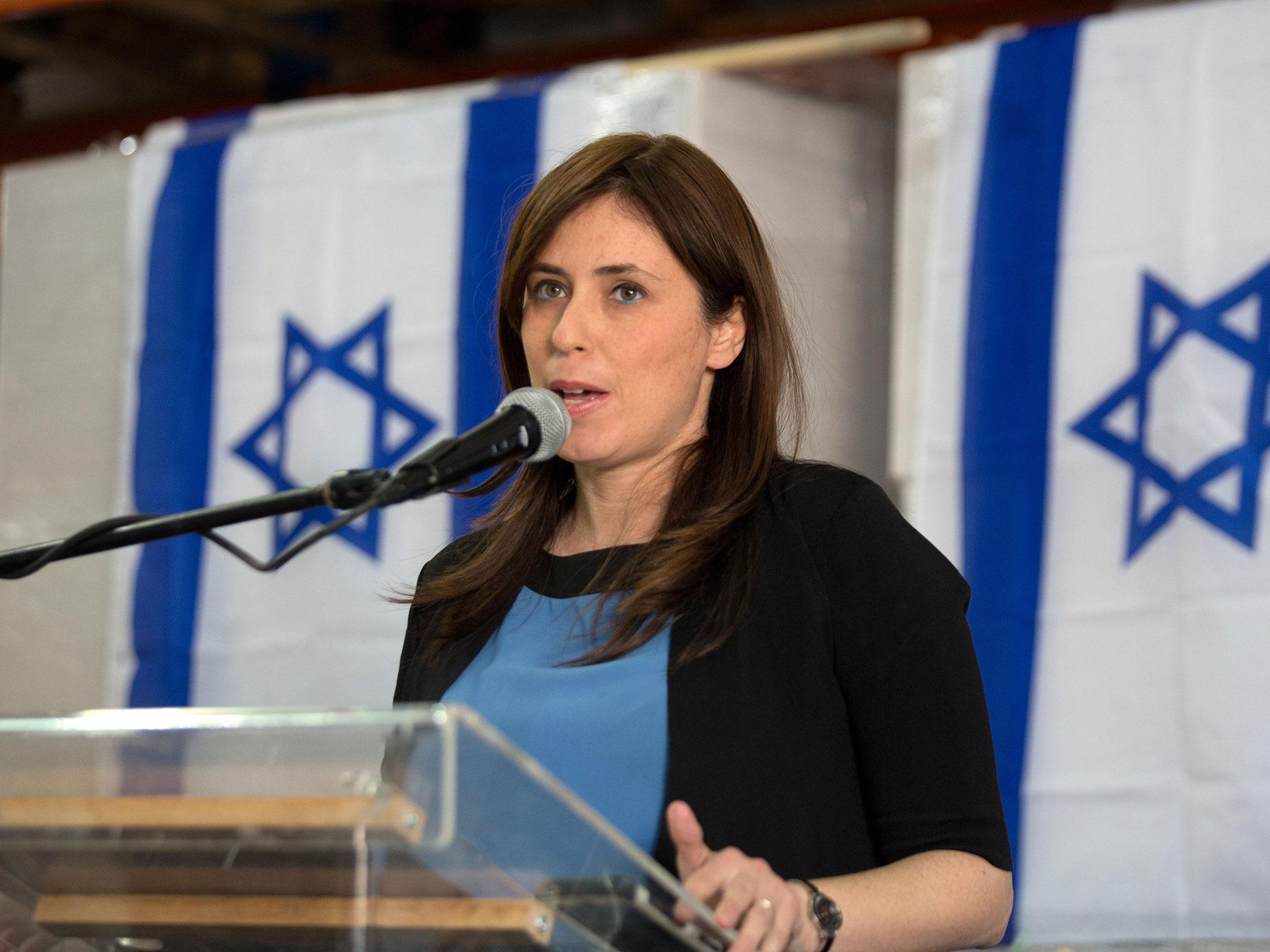Israeli deputy foreign minister denies Palestinians live under occupation: 'This is Judea and Samaria'
Tzipi Hotovely says it is 'very clear Palestinians are not interested in a Palestinian state'

Your support helps us to tell the story
From reproductive rights to climate change to Big Tech, The Independent is on the ground when the story is developing. Whether it's investigating the financials of Elon Musk's pro-Trump PAC or producing our latest documentary, 'The A Word', which shines a light on the American women fighting for reproductive rights, we know how important it is to parse out the facts from the messaging.
At such a critical moment in US history, we need reporters on the ground. Your donation allows us to keep sending journalists to speak to both sides of the story.
The Independent is trusted by Americans across the entire political spectrum. And unlike many other quality news outlets, we choose not to lock Americans out of our reporting and analysis with paywalls. We believe quality journalism should be available to everyone, paid for by those who can afford it.
Your support makes all the difference.Israel's deputy foreign minister has denied Palestinians are living under Israeli occupation, instead referring to the West Bank using the term "Judea and Samaria".
Speaking on the 100th anniversary of the Balfour Declaration, which signalled British support for the creation of a Jewish homeland, Tzipi Hotovely said Israel gives equal rights to both Arabs and Israelis.
Her remarks were challenged on BBC Radio 4's Today programme by host Nick Robinson, who said Palestinians living in the occupied West Bank do not have equal rights and that much of the international community recognises the West Bank as being under occupation.
"I deny the idea of occupation. This is Judea and Samaria," Ms Hotovely replied.
"Those are places where in the last 25 years the Israeli government was trying to give the Palestinians all chances to have their own ruling."
She said "Palestinians refused every time to have their own self-determination" or recognise the state of Israel.
When Mr Robinson pointed out that the UN and many governments recognise the West Bank as occupied by Israel, Ms Hotovely said Israel could not "be an occupier in a land that the Jewish people belonged to for thousands of years."
"Even Lord Balfour, the reason he recognised this connection, was because he was Christian, he knew the bible, he knew the thousands of years of connection of the Jewish people to these places."
Israel captured the West Bank, East Jerusalem and the Gaza Strip, land the Palestinians want included in a future state, in the 1967 Mideast war.
The deputy foreign minister went on to say it was "very clear that the Palestinians are not interested in a Palestinian state".
Asked if she could see Israel incorporating the occupied West Bank, she said: "I think Judea and Sumeria are definitely going to be under Israeli control. The Palestinians should decide whether they want to live peacefully with us.
"If they would like to declare war on Israel, what was proven in the last 70 years was that Israel can win every single battle and every single war that the neighbours are declaring."
The Balfour declaration is celebrated by Israelis while Palestinians view it as a political injustice.
The declaration was the result of discussions between British Jewish leaders seeking political recognition of their goal of Jewish statehood and British politicians embroiled in the First World War.
Written by British Foreign Secretary Lord Arthur Balfour and addressed to Lord Lionel Walter Rothschild, a British financier and proponent of Zionism, the declaration promised British assistance to create a Jewish homeland.
"His Majesty's government view with favour the establishment in Palestine of a national home for the Jewish people, and will use their best endeavours to facilitate the achievement of this object," the declaration reads, continuing with the caveat: "It being clearly understood that nothing shall be done which may prejudice the civil and religious rights of existing non-Jewish communities in Palestine."
Israel views the pledge as the first international recognition granted to the Jewish people's desire to return to its historic homeland.
Palestinians see the declaration as the original sin, a harbinger of their "nakba," or catastrophe, the mass displacement that resulted from the war surrounding Israel's creation in 1948.
Join our commenting forum
Join thought-provoking conversations, follow other Independent readers and see their replies
Comments